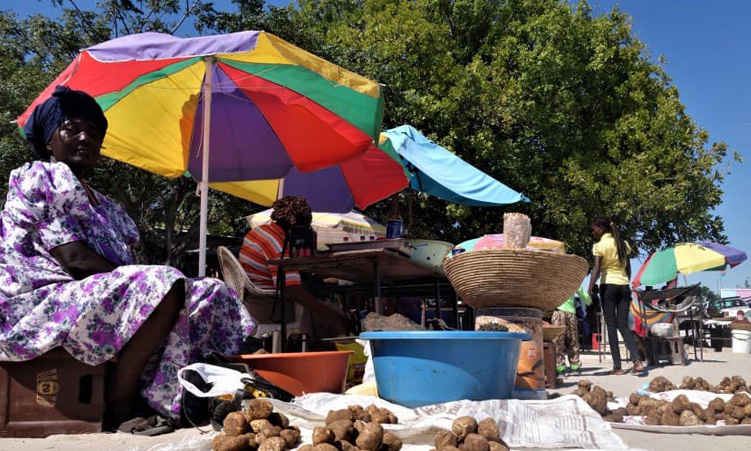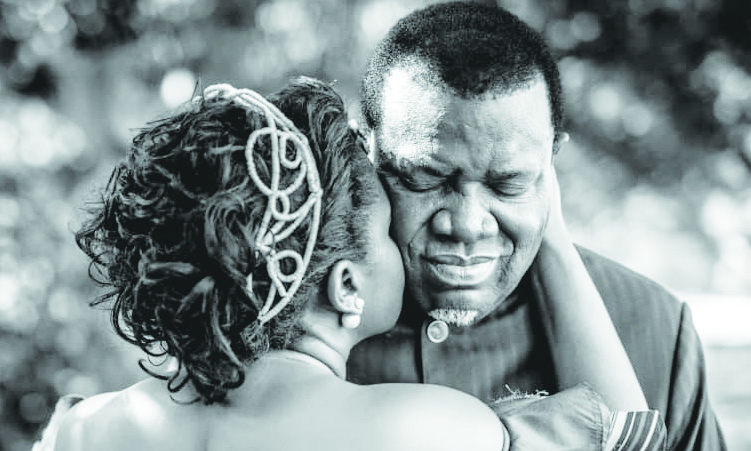WHY should we write? “We should write because writing brings clarity and passion to the act of living.
Writing is sensual, experiential, grounding. We should write because writing is good for the soul.We should write because writing yields us a body of work, a felt path through the world we live in,” says the writer Julia Cameron, from whom I borrow my title.What all this means is that each of us has life experiences that makes us unique writers and informs our writing.And because of that we all become writers – we all have a story to tell or an idea to share.Personally, I have been writing for the past 18 years.I have written for a number of publications – The Times of Namibia, New Era, Namibia Review, The Zimbabwean Mirror, The Southern African Political and Economic Monthly, UNMIL Focus, UNMIL Today, The Sentinel (Liberia) and, of course, The Namibian.As writers we all work in an eclectic mix of genres ranging from poetry, journalistic, scholarly to fiction writing, among others.I have been unable to pigeonhole my own writing into any specific category.The problem is that I have been initiated into the writing industry after graduate studies in the social sciences, not journalism or media.Don’t get me wrong.This is not a veiled piece of my autobiography – although there is such an element.After all you cannot separate your writing from the self unless you are doing a ‘how-to’ type of writing.So, in several ways, therefore, this piece is a prolegomenous exploration of the possibilities for a more nuanced and radical type of journalistic type of writing which is in short supply in Namibia today.Such journalism should ideally go beyond the traditional questions of ‘who, what, when, where and how’ to an appreciation for the bigger picture.The bigger picture whether from a journalistic or social science viewpoint should try to understand how issues of power and class impinge on public policies and economic changes.What then is the relevance off all this? Because ideas are crucial in how economic systems function in special cultural and social settings and contexts.The general theoretical point which I’m trying to make is that when a writer or critic of an epoch gets involved in the writing process she or he does so within the narrow confines of his or her social position of his contemporaries.I’m, of course, generalising a bit here because there have been writers who have gone beyond their own class limitations to look at society from the outside, so to speak.But whom do we write for and what do writers hope to achieve by all this? The answers are many as there are writers.But generally greater writers write to inform and mobilise the public.I’m aware that the term ‘public’ has been contested especially in the field of journalism but nevertheless we keep on writing because, perhaps stubbornly, we believe that there is a public or publics out there.As someone who comes from the radical school of thought, I believe that there is a class of people who are dispossessed, unrepresented and forgotten not only in my own country but worldwide.That is my main public.But there is another public as well.The small minority that decides on how the world should look like – the people who can put public policies to either progressive or retrogressive uses.But are we writers making any difference in our societies, and if so, to what extent especially here in Namibia? The simple answer is that there has not been widespread acceptance of the legitimacy of the central political role of the writer-critic in our society.Just take the hostile reception that people like Joe Diescho and others receive from the political establishment.Some of us have been writing about issues that we thought needed to be reconfigured but most of these have been falling on deaf ears – especially those issues that needed major policy changes such as the fishing and the diamond industries.But I’m happy that at least on some minor issues there has been a receptive ear.As an example, I’m the one of the writers who first questioned the rationale of one person holding both the positions of an Attorney General and a Minister of Justice at the same time.This has now been changed and so is the Central Governance Agency.But as Steve Biko would say: I write what I like.We should write because writing is good for the soul.We should write because writing yields us a body of work, a felt path through the world we live in,” says the writer Julia Cameron, from whom I borrow my title.What all this means is that each of us has life experiences that makes us unique writers and informs our writing.And because of that we all become writers – we all have a story to tell or an idea to share.Personally, I have been writing for the past 18 years.I have written for a number of publications – The Times of Namibia, New Era, Namibia Review, The Zimbabwean Mirror, The Southern African Political and Economic Monthly, UNMIL Focus, UNMIL Today, The Sentinel (Liberia) and, of course, The Namibian.As writers we all work in an eclectic mix of genres ranging from poetry, journalistic, scholarly to fiction writing, among others.I have been unable to pigeonhole my own writing into any specific category.The problem is that I have been initiated into the writing industry after graduate studies in the social sciences, not journalism or media.Don’t get me wrong.This is not a veiled piece of my autobiography – although there is such an element.After all you cannot separate your writing from the self unless you are doing a ‘how-to’ type of writing.So, in several ways, therefore, this piece is a prolegomenous exploration of the possibilities for a more nuanced and radical type of journalistic type of writing which is in short supply in Namibia today.Such journalism should ideally go beyond the traditional questions of ‘who, what, when, where and how’ to an appreciation for the bigger picture.The bigger picture whether from a journalistic or social science viewpoint should try to understand how issues of power and class impinge on public policies and economic changes.What then is the relevance off all this? Because ideas are crucial in how economic systems function in special cultural and social settings and contexts.The general theoretical point which I’m trying to make is that when a writer or critic of an epoch gets involved in the writing process she or he does so within the narrow confines of his or her social position of his contemporaries.I’m, of course, generalising a bit here because there have been writers who have gone beyond their own class limitations to look at society from the outside, so to speak.But whom do we write for and what do writers hope to achieve by all this? The answers are many as there are writers.But generally greater writers write to inform and mobilise the public.I’m aware that the term ‘public’ has been contested especially in the field of journalism but nevertheless we keep on writing because, perhaps stubbornly, we believe that there is a public or publics out there.As someone who comes from the radical school of thought, I believe that there is a class of people who are dispossessed, unrepresented and forgotten not only in my own country but worldwide.That is my main public.But there is another public as well.The small minority that decides on how the world should look like – the people who can put public policies to either progressive or retrogressive uses.But are we writers making any difference in our societies, and if so, to what extent especially here in Namibia? The simple answer is that there has not been widespread acceptance of the legitimacy of the central political role of the writer-critic in our society.Just take the hostile reception that people like Joe Diescho and others receive from the political establishment.Some of us have been writing about issues that we thought needed to be reconfigured but most of these have been falling on deaf ears – especially those issues that needed major policy changes such as the fishing and the diamond industries.But I’m happy that at least on some minor issues there has been a receptive ear.As an e
xample, I’m the one of the writers who first questioned the rationale of one person holding both the positions of an Attorney General and a Minister of Justice at the same time.This has now been changed and so is the Central Governance Agency.But as Steve Biko would say: I write what I like.
Stay informed with The Namibian – your source for credible journalism. Get in-depth reporting and opinions for
only N$85 a month. Invest in journalism, invest in democracy –
Subscribe Now!






